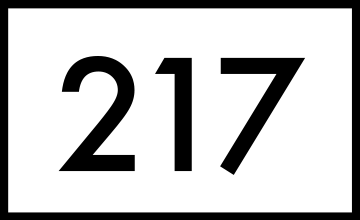In the era of user-friendly design tools, creating a logo might seem as simple as a few clicks and drags. Services like Canva offer enticing promises of easy logo creation, but does simplicity always result in quality? I understand the need for affordability and ease, especially when just starting out, but you should be aware of potential pitfalls when relying on platforms like Canva for logo design.
- Lack of Originality
One of the primary drawbacks of using Canva for logo design is the risk of ending up with a generic and unoriginal logo. Canva provides templates that are often used by thousands of other users. Your logo should be a unique identifier of your brand, setting you apart from competitors. A cookie-cutter design won’t achieve that.
Check out this image put together by Blaksheep Creative. Countless users create logos using Canva’s drag and drop templates, which makes it almost impossible to stand out or set yourself apart from your competition.

- Limited Customization
While Canva offers a range of templates, these templates come with limitations. Customization options are constrained by the platform’s features, making it challenging to create a logo that truly embodies your brand’s identity. A logo should reflect your brand’s values, mission, and personality – something that might not be achievable within the confines of a template.
- Cookie-Cutter Branding
Your brand is as unique as your fingerprint, and your logo should reflect that. Using a platform like Canva can result in a logo that doesn’t align with your brand’s essence. The lack of personalized touch can lead to a logo that feels disconnected from your company’s story and values.
- Lack of Scalability and Adaptability
Logos have to look impeccable across various mediums and sizes, from business cards to billboards. Canva designs might not be optimized for scalability, leading to issues like pixelation or loss of detail when resized. Custom-designed logos are crafted with versatility in mind, ensuring they retain their quality and impact at any size.
- Limited Typography Choices
Typography plays a vital role in logo design, helping convey your brand’s personality. Canva offers a selection of fonts, but these might not align with your brand’s desired tone. A professional designer can curate typography choices that perfectly encapsulate your brand’s identity.
- Risk of Copyright Issues
Canva’s vast library of elements, icons, and images might seem convenient, but it comes with the risk of using assets that have been overused or might even be subject to copyright restrictions. A custom logo is created from scratch, ensuring that every element is unique and legally sound.
Again, from Blaksheep Creative, look at this screenshot taken directly from Canva! You can’t trademark a logo designed on their software.

- Inadequate Brand Strategy
Logo design is not just about aesthetics; it’s rooted in strategic thinking. A professional designer considers your target audience, industry, and competition to craft a logo that aligns with your brand’s positioning. Using Canva often neglects these crucial strategic aspects.
Use caution!
While platforms like Canva offer convenience and user-friendly features, they fall short when it comes to creating a logo that truly represents your brand’s identity and aspirations. A logo is an investment in your brand’s future, a visual asset that encapsulates your essence and sets the stage for customer perceptions. Custom logo design by a professional designer ensures originality, uniqueness, scalability, and alignment with your brand’s strategy – qualities that can’t be achieved through templated solutions. When it comes to a logo that leaves a lasting mark, customization is key.





